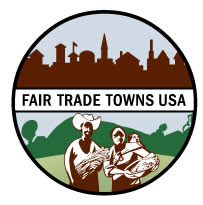 A banana worker in the Dominican Republic takes Fair Trade Certified bananas to be washed and packed
A banana worker in the Dominican Republic takes Fair Trade Certified bananas to be washed and packed
This is a long one!
The EU is close to reaching an agreement with Latin America that will put an end to the 16-year so-called “banana wars” that have favored Caribbean, African, and Pacific region countries over larger banana producing countries in Latin America. The agreement comes after years of ongoing negotiations, and while it is welcomed by Latin America, the United States, and the WTO who have long complained that the EU’s policies violate international free trade agreements, it has angered many Europeans, Caribbean citizens, and Africans who argue that an end to the banana wars will destroy the livelihoods of thousands of small farmers.
Since 1993, the European Union has favored many of its former colonies in the Caribbean, Pacific region, and Africa, known as the ACP countries, by importing their produce without tariffs, and placing a large duty on produce from other countries. This has helped smaller, developing countries compete against larger producing regions, such as Latin America, known as “dollar banana” areas for how low the prices of their produce—mostly bananas—are. As a result, the ACP countries have experienced almost exclusive access to European markets for sixteen years. And because a large percentage of ACP countries produce Fair Trade Certified fruit, Europeans have had access to a large quantity of Fair Trade produce for many years. In fact, 51,336 tons of Fair Trade bananas were sold in Europe in 2003, and 47% of Switzerland and 6% of the United Kingdom’s national market for bananas is Fair Trade Certified. With the coming agreement to end the banana wars, however, the exclusivity the ACP countries have benefited from will come to an end, and the future of large Fair Trade Certified banana sales in the UK could be threatened.
Latin American countries don’t see it that way, however. For years, they have felt barred from European markets by tariffs applied discriminately. Large “dollar banana” companies, like Chiquita and Dole, that dominate the United States’ banana market, have been largely absent from European supermarkets. Instead, more expensive produce from the smaller ACP countries has been available. The Latin American countries would bring cheaper produce to Europe, something that is supported by many European consumers feeling the squeeze from an economic recession. Further, the agreement reached between Europe and Latin America would reduce the tariff slowly over a period of four years, and the EU would give almost 200 million Euros in aid to the ACP countries in order to help them become more competitive in the changed market. From a Latin American perspective, the agreement helps to make trade more free, and puts an end to a discriminatory trade policy.
(Image Above): A banana worker on a Fair Trade Certified farm in Ecuador
Nevertheless, many Europeans and citizens of the ACP countries are outraged. Banana imports to Europe from the ACP is projected to decline by about 14% over the next seven years. For an ACP nation like the Windward Islands, where between 80 and 90 percent of their exports are bananas, the effects of that decline could be devastating. The Following a leak of the agreement’s details, ministers of the ACP issued a statement that stated that “the coming days could spell the end of the era when Europe considered the fight against poverty a priority.” For these leaders, Europe’s decision to end the trade policies that have kept the ACP countries afloat since 1993 is akin to Europe turning its back on the fight against poverty.
Obviously, the issue is a complicated one. In terms of Fair Trade, the fear is that this agreement will devastate the livelihoods of many of the farmers that produce Fair Trade Certified products; at the same time, however, the agreement could help other small farmers from Latin America with Fair Trade Certified produce gain access to the European markets they have been unable to export to for so long. Ecuador, for example, makes up 42% of the Fair Trade Certified banana market. Decreased tariffs will allow its farmers access to the European market.
The agreement was set to be finalized by the end of November, however, the controversy surrounding it, and the outcry from the ACP countries has prolonged the negotiations. We’ll update as soon as more information is known.
In the meantime, what is your opinion on the end to the “banana wars”?
 A banana worker in the Dominican Republic takes Fair Trade Certified bananas to be washed and packed
A banana worker in the Dominican Republic takes Fair Trade Certified bananas to be washed and packed 


Bless up!
ReplyDelete